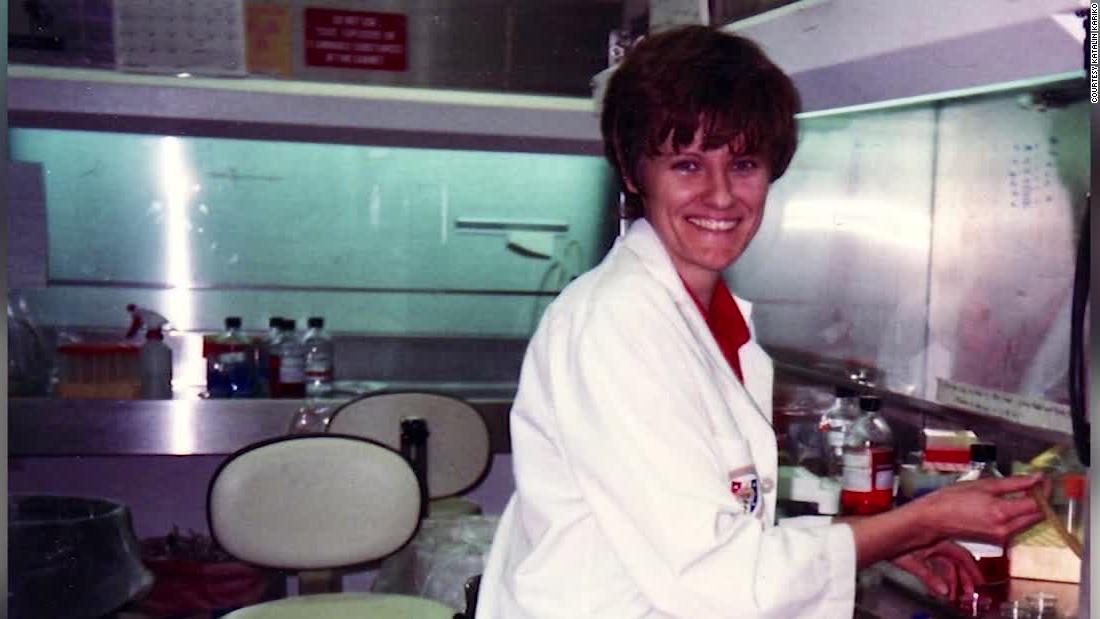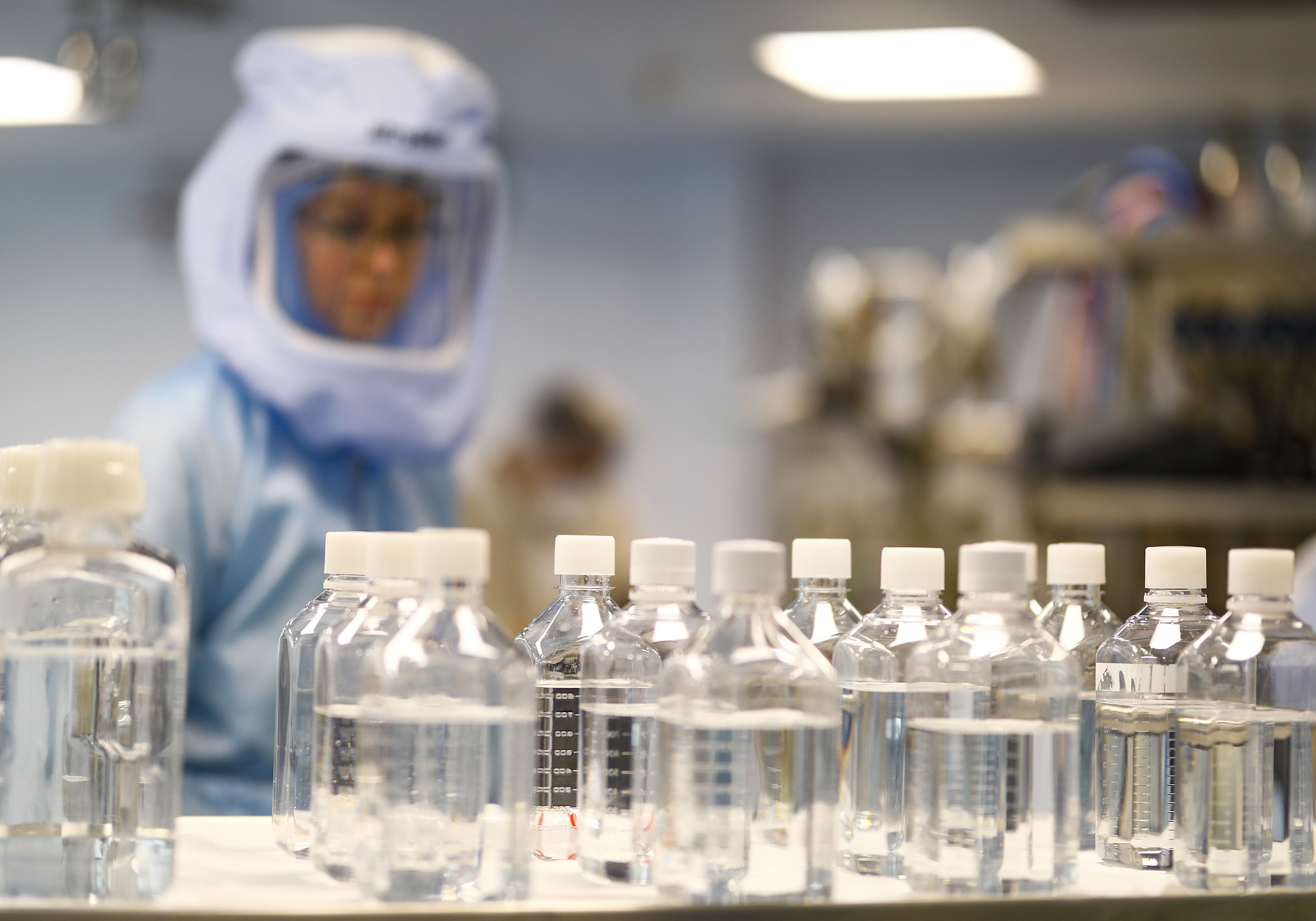Thanks to large-scale vaccinations, humanity's hope to emerge from the COVID-19 pandemic is on the horizon. But it was the work of a little-known scientist that paved the way for vaccine development in the Western world.
Katalin Kariko, a Hungarian-born biochemist, is one of the pioneers behind synthetic messenger RNA (mRNA), the technology used by Pfizer/BioNTech and Moderna in COVID-19 vaccines. RNA gives cells instructions on how to make proteins.
It is a story of a scientist who struggled, endured and refused to quit.
Kariko spent much of her career dealing with rejections. Her work, attempting to harness the power of mRNA to fight disease, was for a long time considered too unorthodox for government grants, corporate funding, and even support from her own colleagues.

/Courtesy of Katalin Kariko via CNN
/Courtesy of Katalin Kariko via CNN
Born in 1955, Kariko is the daughter of a butcher in the small Hungarian town of Kisujszallas. Fascinated by science from a young age, Kariko earned a PhD at the University of Szeged and worked as a postdoctoral fellow at its Biological Research Center. In 1985, when the university's research program ran out of money, Kariko moved to the United States with her husband and two-year-old daughter as a postdoctoral student at Temple University in Philadelphia.
In 1989, she landed a low-level position as research assistant professor at the University of Pennsylvania where she worked with Dr. Elliot Barnathan, a cardiologist. She was not able to receive grant money, and when Dr. Barnathan left the university after accepting a position at a biotech firm, Kariko was left without a lab or financial support.
Luckily, another colleague believed in her: Dr. David Langer, a neurosurgeon who urged the head of the neurosurgery department to give Kariko's research a chance. Langer recalled that unlike other scientists, Kariko never cared about patent or how to make money out of a new discovery. Langer also left the university afterward.
By 1995, 10 years after she arrived in the U.S., Kariko was demoted from her position at UPenn and was then diagnosed with cancer. With no money coming in to support her work on mRNA, she was back to the lower rungs of the scientific academy.
But it was a fateful meeting by a photocopier in the late 1990s that turbocharged Kariko's career. There she met immunologist Dr. Drew Weissman, who was working on an HIV vaccine.
The duo started collaborating and writing grants, but with little luck.
"We didn't get most of them. People were not interested in mRNA. The people who reviewed the grants said mRNA will not be a good therapeutic, so don't bother," Weissman said.
Leading scientific journals rejected their work. When the research finally was published, it got little attention.
"Usually, at that point, people just say goodbye and leave because it's so horrible," Kariko said in an interview.
But she persisted in the face of these difficulties.
"From outside, it seemed crazy, struggling, but I was happy in the lab," she told Business Insider.
In 2005, Kariko and Weissman achieved a major breakthrough, allowing synthetic RNA to bypass the body's immune system.
Their work caught the attention of two key scientists. One of them is Canadian stem cell biologist Derrick Rossi, who would later help found Moderna and Pfizer's future partner, BioNTech. Not only did Rossi recognize it as groundbreaking, he now believes Kariko and Weissman deserve the Nobel Prize in chemistry.

Workers test the procedures for the manufacturing of the messenger RNA (mRNA) for the COVID-19 vaccine at BioNTech, Marburg, Germany, March 29, 2021. /CFP
Workers test the procedures for the manufacturing of the messenger RNA (mRNA) for the COVID-19 vaccine at BioNTech, Marburg, Germany, March 29, 2021. /CFP
Researchers at Pfizer-BioNTech and Moderna used these techniques to develop their vaccines. After decades on the fringes of the scientific community, Kariko and Weissman are favorites to win the Nobel Prize for Medicine in 2021.
"It's going to be transforming," Dr. Anthony Fauci, director of the U.S. National Institute of Allergy and Infectious Diseases said of mRNA research. "It is already transforming for COVID-19, but also for other vaccines. HIV — people in the field are already excited; influenza, malaria."
When trials found the Pfizer-BioNTech coronavirus vaccine to be safe and 95 percent effective in November 2020, Kariko's first reaction was a sense of "redemption," she told The Daily Telegraph.
Despite this triumph after her long struggle, Kariko said she is waiting for mass vaccinations to eradicate the virus's threat. "Then, I will really be celebrating," she told CNN.

